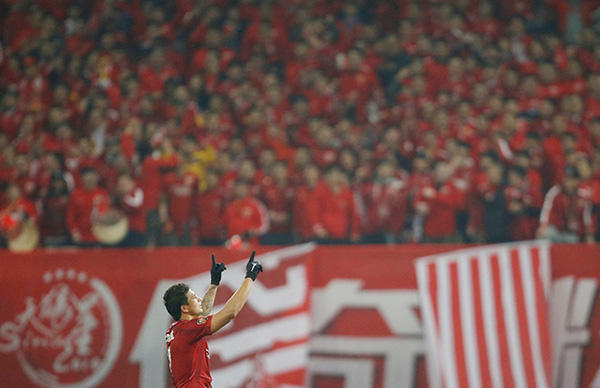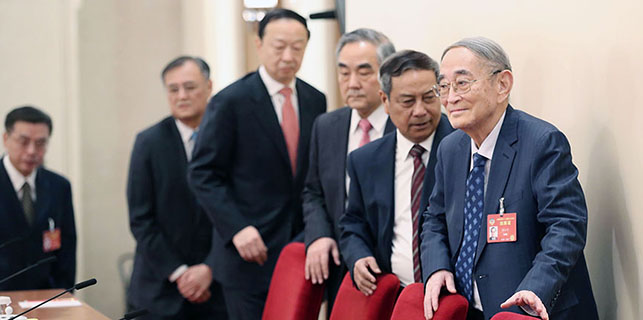Chinese soccer clubs can be brand leaders, says Lagardere boss
 |
|
SIPG's Elkeson celebrates after scoring during a match with Changchun Yatai FC at Chinese Super League in Shanghai on March 4, 2017. [Photo/VCG] |
A Chinese club could one day be a bigger brand than Manchester United and it is only a matter of time before the Super League (CSL) challenges the English Premier League for world domination, according to leading sports marketer Andrew Georgiou.
Georgiou, the chief executive of Lagardere Sports and Entertainment, told Reuters in an interview on Monday that the world order was changing fast.
"I think China has the financial capability to become the biggest league in the world," said the Australian, whose company is partner to more than 100 European football clubs as well as working with a number of confederations including Asia.
"I think it (the CSL) will overtake the Premier League at some point. The only part that I don't know is how long it will take."
Driven by soccer-loving President Xi Jinping, who wants China to host the World Cup in 2030 and win it by 2050, Chinese clubs -- whose 14th season started last Friday -- have spent heavily on star players.
Website www.transfermarkt.com estimates that the Super League's 16 clubs spent a combined $411 million in the Chinese transfer window, which closed on Tuesday.
Shanghai Shenhua bought 32-year-old Argentina striker Carlos Tevez from Boca Juniors last December for a reported $88.56 million, making him the
sport's highest paid player with a reported salary of $753,000 per week.
Shanghai SIPG spent around $63 million to lure Brazilian Oscar from Chelsea.
Companies from China have also spent heavily on buying into foreign clubs.
Middle Class
Georgiou pointed to the rapid growth of an affluent middle class in China, with talk of 550 million in that bracket by 2020 compared to 150 million in 2009, as a driving force.
"So you've got a spending power in China that's so huge, it's going to dominate. In Europe there's 700 million people but 56 leagues. In China, there's one league. So you've got that spending power focused at the moment on 16 clubs," he said.
"The demand in China for this product is going to be well beyond what people can comprehend today.
"Our business has been out there for 25 to 30 years waiting for this...change to happen and for the last three or four years we've seen more change happen than we have in the last 20," he added.
"And I think we're only seeing the tip of the iceberg of what's to come."
Georgiou said the only unknown, and the element that would take most time, was how long it would take to develop a grassroots structure -- something that skeptics see as a stumbling block.
Former Vancouver Whitecaps chief executive Paul Barber last month compared the splurge to "lightning in a bottle" -- bright, exciting, very contained and in danger of fizzling out.
Georgiou agreed a generational change would probably be needed but that would happen eventually given the popularity of the sport.
"It's going to continue to accelerate and I don't think people fully understand the impact it's going to have on the global economy of football," he said.
"Why wouldn't a Chinese club be capable of being bigger than any other club in the world? Time is the only barrier here."
Georgiou said it would be wrong to think that the Premier League would be anything less than a world-class championship even if it's global dominance was challenged.
But he could envisage a time when Chinese children born today would be more interested in following their local club than a foreign one.
"Provoking the conversation is what interests me," said the chief executive.
"Having a very European-focused footballing world is great, but there's been no challenger to it. I think we are going to see for the first time, a challenger to the European dominance of football.
"Manchester United's brand, the EPL's strength – those will remain.
"But what will happen is you will have genuine competition in China that will rival anything you've seen in Europe over the last 100 years. It's an economic argument."
Reuters









